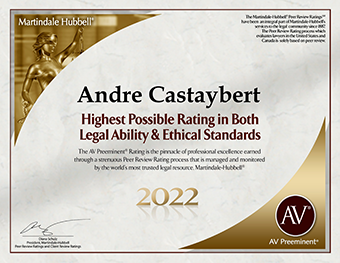New York Court of Appeals Decision Expands Reach of Negligent Supervision and Retention Claims
July 20, 2023
On June 13, 2023, the New York Court of Appeals reversed the New York Appellate Division, First Department’s decision in The Moore Charitable Foundation et al. v. PJT Partners, Inc. et al. This decision has a significant impact on who can bring claims against employers for employee misconduct suits in New York, particularly when the employer is a financial institution or law firm doing business in New York.
Negligent supervision and retention claims typically occur when an individual takes action against an employer who failed to discipline or terminate an employee whom the employer knew was unsuitable or potentially harmful. Under already established case law, employers owed a duty of care to existing customers of a business. In Moore Charitable Foundation, however, the Court expanded the scope of the employer’s duties recognizing that an employer can be held legally responsible for injuries and damages caused by an employee’s misconduct to prospective customers, even when the employer did not have notice of previous misconduct by the employee.
The majority in Moore Charitable held that, “when an employer has notice of its employee’s propensity to engage in tortious conduct, yet retains and fails to reasonably supervise such employee, the employer may become liable for injuries thereafter proximately caused by its negligent supervision and retention”.
The Court further explained that a “defendant is on notice of an employee’s propensity to engage in tortious conduct when it knows or should know of the employee’s tendency to engage in such conduct”. The Court held the employer in this case had sufficient constructive notice because the employee had engaged “in ‘excessive high-risk securities trading’ from personal accounts during work hours” and “began drinking to excess during the workday”.
Accordingly, an employer in New York could now be found liable for a negligent supervision and retention claim if they (1) actually know of employee misconduct or (2) should have known given the individuals history/prior events showing a propensity to commit a wrongful act.
The dissent argued that the majority decision poses significant threats to financial institutions, banks, and law firms doing business in New York because “permitting all potential customers to sue employers for an employee’s fraud … would result in an unmitigated proliferation of claims”.
To read the full opinion written by Judge Cannataro in The Moore Charitable Foundation et al. v. PJT Partners, Inc. et al., click here.
To read how Castaybert PLLC can assist you with employment law matters, click here.










